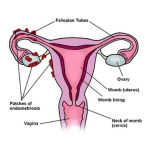During an appointment with your doctor, each minute matters. A typical visit can be short and getting the attention you need requires you to ensure that your encounter with the doctor, regardless of how brief it may be, should be efficient.
Getting Ready for the Visit
Before your doctor’s appointment, you need to decide in advance why you want to see the doctor and what you expect from the visit. This enables you to organize and plan how you will spend the time that you spend with your doctor. You may want the doctor to get insight into your family’s medical history, ask specific questions or seek a second opinion regarding a recommended medical procedure.
If you set goals for the visit and have clear expectations, your visit will be meaningful. Whether it is the first time that you will be seeing the doctor, going for a regular exam or addressing health concern, your doctor needs to be aware of your history.
Medical History
Your medical history should ideally be available from the first visit as it will be helpful for the physician and will cut down on the time that would have been used to ask you several questions and take notes. If you and the doctor are already familiar with each other and you are visiting because of an illness, you can save time by writing clear notes about you’re your health problem, symptoms and what you need.
It will also be useful for the doctor to know whether you have already performed some tests such as temperature and blood pressure at home. Note your lifestyle habits such as diet, physical activity, smoking and drinking and any changes that you may have made recently.
Medication
Instead of carrying all your medication with you to the doctor’s office, consider writing down a list of what you are taking, their doses and how often you take them. Keeping a record of your drugs will be beneficial for both you and your physician. View author choice here.
List of Questions
It is also a good idea to write a list of questions that you want to ask in order of their priority. This will ensure that even if you are not able to ask all your questions, the most important ones will be dealt with. Writing your questions for the doctor in advance will keep you focused during the visit and make sure that pertinent questions are answered.
Preparing your questions in advance prevents you from forgetting what you want to ask. However, being prepared with questions does not mean that you should challenge your doctor with medical research or be confrontational.
Diagnosis and Treatment
- If you have received a diagnosis, find out whether it is a temporary, chronic or contagious. Clarify the diagnosis and ask if it may be something else.
- When you need treatment, the doctor is expected to explain its effect on the problem, side effects, duration and interactions with the rest of the medication that you take.
If a test is required, you need explanations regarding how the problem will be identified, preparation and when the results will be available.







